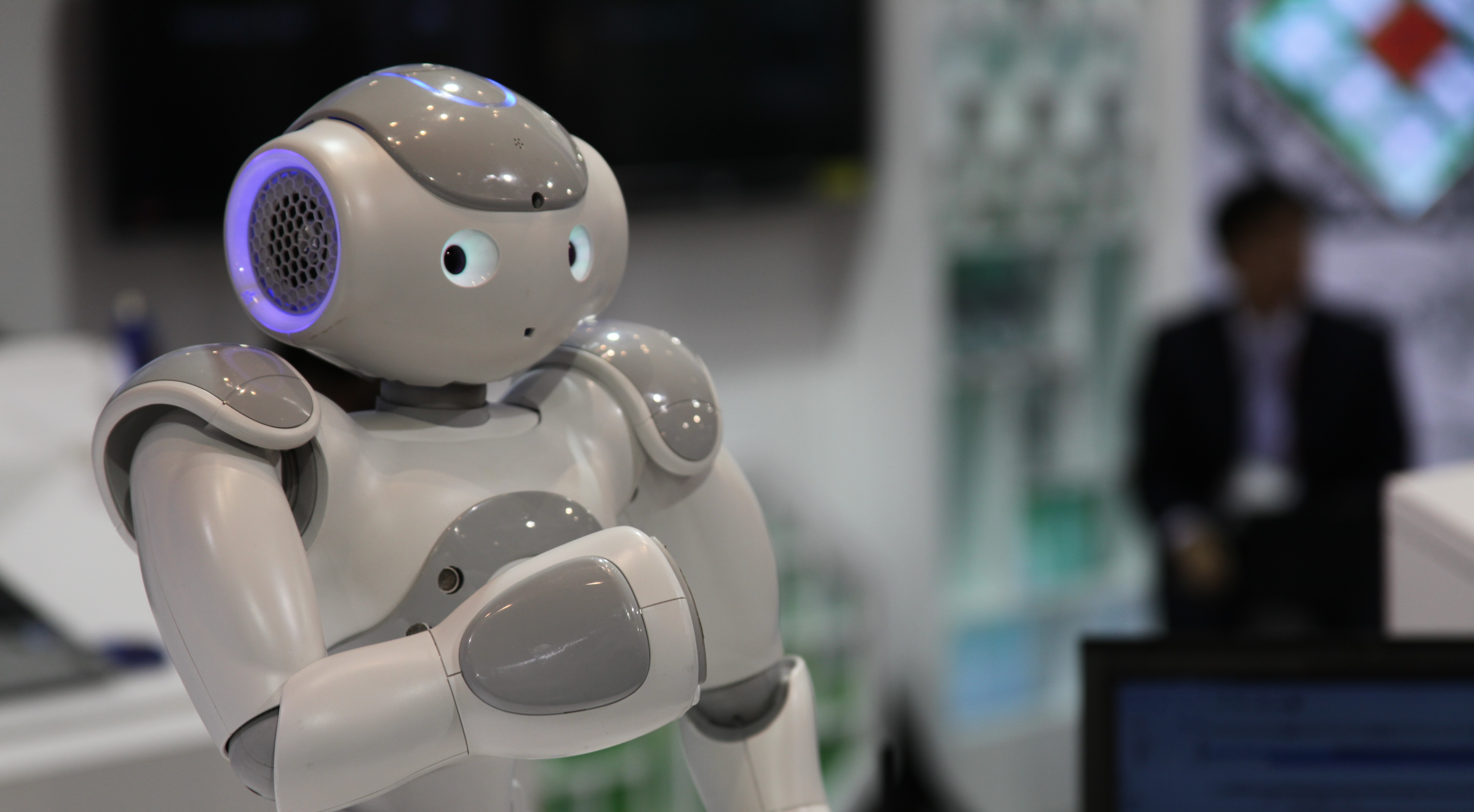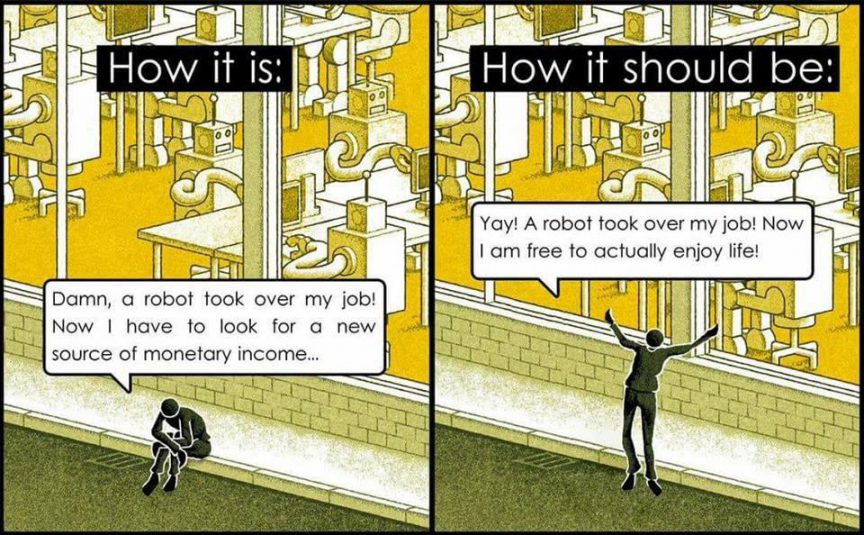
Globalisation and automation: these are the trends reshaping our world, or so we are told. According to the consultancy McKinsey, 80% of jobs could technically be automated by 2050. Globalisation will bring the Global South closer to the Global North. Together, they will create a world in which an ever greater number of human beings compete for a shrinking number of jobs.
But there’s a fatal flaw in this narrative: it doesn’t make any sense.
‘Globalisation’ can’t do anything – it is not an actor; it does not have agency. The same goes for ‘automation’ – whilst robots may one day become autonomous beings, as things stand they still have to be programmed by people. Hence the absurdity of claiming that ‘the robots are taking our jobs’. Robots don’t have the capacity to ‘take’ anything.
Capitalists, on the other hand, most certainly do.
Globalisation and automation are both examples of what linguists call ‘nominalisations’: nouns created from adjectives or verbs. For example, interference is a nominalisation of ‘interfere’. Whilst the verb ‘to interfere’ would have to be used with a subject (I interfere, you interfere, etc), the nominalisation does not. One can completely strip out the actor behind the change and rely instead on an abstract noun to do all the work.
This method of political discourse is powerful and highly ideological. Talking about ‘globalisation’ allows us to construct the idea of ‘globalisation’ as an inevitable, impersonal trend, driven by the agentless forces of history. The nominalisation completely obscures the fact that ‘to globalise’ is a verb – the same goes for ‘to automate’. ‘Automation’ doesn’t just happen – tasks are automated by people.
In fact, ‘nominalisation’ is itself a nominalisation – someone has to be doing the nominalising. Those who popularised the depoliticising of terms like ‘globalisation’ and ‘automation’ benefit from the processes they claim to describe but in fact obscure. And it is not hard to see how.
Popular use and acceptance of these terms represents a significant victory for the agents behind these changes. People talk easily of globalisation and automation, viewing them as abstract ‘facts of life’ to which we will all have to adapt, naturalising what are in fact contingent phenomena. This has served to obscure the role of those doing the globalising and the automating.
When it comes to globalisation, the wealthy have benefited massively from the dramatic increase in capital mobility since the 1980s. They are increasingly able to invest their money anywhere in the world, paying as much or as little tax as they would like to along the way. They would argue that this was an inevitable result of technological change, but legal, social and organisational changes were required too – from the removal of capital controls, to the massive deregulation of finance, to the creation of international financial institutions like the IMF and World Bank.
By presenting these changes as natural and inevitable, elites have been able to claim they are also irreversible. Fashionable nominalisations like ‘globalisation’ have allowed elites to argue that high tax rates don’t work in a world where capital is free to move wherever it likes. You can’t tax the wealthy, so the argument goes, because if you try they’ll just leave. Don’t like it? Take it up with globalisation.
The same kind of analysis can be applied to the idea of automation. We are increasingly being flooded with doomsday scenarios about mass technological unemployment resulting from developments in machine learning and artificial intelligence. Rather than challenging these narratives, many on the left have succumbed to these apparently inevitable changes and developed policies that will ease the pain – from universal basic income to the three-day week.

But such a narrative totally fails to grasp how these changes are being driven, and in whose interests. Much of the technology behind automation has been developed either by huge transnational monopolies or highly militarised neoliberal states. More importantly, the way in which these technological changes work their way into the production process is determined almost entirely by giant corporations and their state sponsors.
These actors have a direct interest in driving labour out of the production process entirely. This transformation would not only allow capitalists to dramatically increase their profits, but would also finally crush labour’s capacity to resist (whilst of course creating new contradictions to which this new mode of capitalism would have to adapt). Full automation under capitalism would represent the completion of a 40-year project to seize an ever greater share of national income for capital, at the expense of labour.
‘The robots’ aren’t coming for our jobs – but the capitalists who own the robots certainly are. And this is ultimately what the politics of automation comes down to – the ownership of capital. Unless ownership of that capital is dramatically broadened, the coming decades will witness ordinary people further stripped of power and control over their lives, with increasing numbers rendered surplus to an economy in which they have no role nor stake.
Resisting capitalist automation should be part of any socialist agenda, as the much-maligned Luddites were well aware. The movement towards a socialist mode of production may then allow us to achieve what might be termed ‘alter-automation’ – à la the ‘alter-globalisation’ movement – based on full automation, a universal basic income, and the full socialisation of wealth.
We on the left must stop presenting ‘automation’ and ‘globalisation’ as interesting, slightly scary, but ultimately inevitable changes to which we must adapt. These terms should be confronted for what they are: active processes to shift wealth and power from the overwhelming majority to a tiny elite. Without that recognition, we will struggle to wrest back control over our economic and political systems and rescue potentially liberating technological advances from the dystopian control of the powerful.
